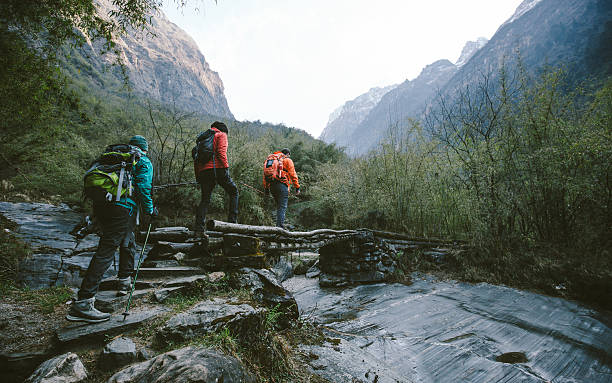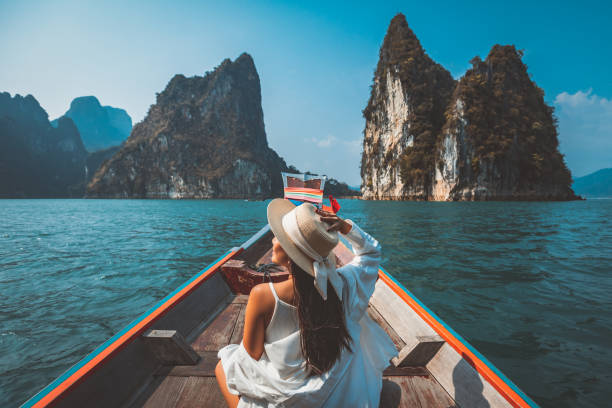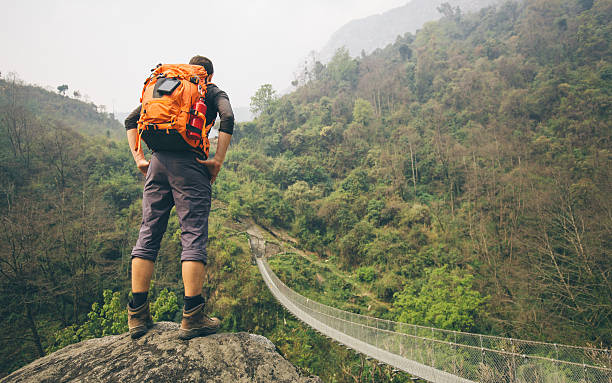Adventure travel is an exhilarating form of tourism that emphasizes exploration, excitement, and the pursuit of unique experiences in diverse environments. It appeals to those who seek to push their boundaries, discover new cultures, and engage in physical and mental challenges. This article delves into the essence of adventure travel, popular activities, benefits, and considerations for those looking to embark on their next adventure.

What is Adventure Travel?
- Definition and Scope:
- Definition: Adventure travel involves journeys that take travelers to destinations where they encounter physical challenges, engage in outdoor activities, or immerse themselves in unique cultural experiences. It often includes activities such as hiking, climbing, kayaking, and exploring remote locations.
- Scope: Unlike traditional tourism, which may focus on relaxation and sightseeing, adventure travel emphasizes active participation and personal growth. It often involves venturing into less-visited or rugged landscapes and experiencing the world from a different perspective.
- Types of Adventure Travel:
- Extreme Sports: Activities such as skydiving, bungee jumping, and rock climbing offer adrenaline-pumping experiences and require a high level of physical and mental preparation.
- Outdoor Exploration: Hiking, trekking, and mountaineering provide opportunities to explore natural landscapes, from dense forests to high-altitude peaks.
- Water-Based Adventures: Kayaking, white-water rafting, and scuba diving allow travelers to explore aquatic environments and engage in thrilling water sports.
- Cultural Immersion: Adventure travel can also include cultural experiences such as staying with indigenous communities, participating in local festivals, and learning traditional crafts.
Popular Adventure Activities
- Hiking and Trekking:
- Mountaineering: Climbing challenging peaks like Mount Everest or Kilimanjaro offers a profound sense of accomplishment and breathtaking views. These expeditions require physical endurance, proper training, and careful planning.
- Long-Distance Treks: Iconic trails such as the Inca Trail to Machu Picchu, the Appalachian Trail in the U.S., and the Camino de Santiago in Spain provide immersive experiences through diverse landscapes and historical sites.

- Extreme Sports:
- Skydiving: Jumping from an aircraft and free-falling through the sky provides a unique thrill and unparalleled views of the earth below.
- Bungee Jumping: Leaping from a height while secured by a bungee cord offers a heart-pounding experience and a rush of adrenaline.
- Water Adventures:
- White-Water Rafting: Navigating rapids and turbulent waters in an inflatable raft tests teamwork and skill, providing a thrilling and dynamic experience.
- Scuba Diving: Exploring underwater ecosystems, from vibrant coral reefs to shipwrecks, reveals the beauty and diversity of marine life.
- Cultural and Wildlife Experiences:
- Safari: Observing wildlife in their natural habitats, such as the Serengeti in Tanzania or the Maasai Mara in Kenya, offers a unique perspective on animal behavior and conservation.
- Local Immersion: Staying with local communities, participating in traditional ceremonies, and learning local customs enrich the travel experience and foster cross-cultural understanding.
Benefits of Adventure Travel
- Personal Growth:
- Challenge and Achievement: Engaging in physically demanding activities and overcoming obstacles can boost confidence, resilience, and self-reliance. Adventure travel often pushes individuals out of their comfort zones, leading to personal growth and empowerment.
- Stress Relief: Immersing oneself in nature and engaging in active pursuits can reduce stress, improve mental well-being, and provide a sense of accomplishment.
- Cultural Enrichment:
- Broadened Perspectives: Adventure travel exposes travelers to diverse cultures, traditions, and ways of life, fostering greater empathy and understanding of global issues.
- Meaningful Connections: Interacting with local communities and participating in cultural activities can create lasting memories and meaningful connections with people from different backgrounds.
- Physical Fitness:
- Active Lifestyle: Many adventure activities involve physical exertion, promoting fitness and overall health. Activities such as hiking, climbing, and kayaking provide cardiovascular benefits and enhance physical strength.
- Environmental Awareness:
- Conservation Efforts: Adventure travelers often gain a deeper appreciation for natural environments and are more likely to support conservation efforts. Responsible travel practices help protect ecosystems and wildlife.

Considerations for Adventure Travel
- Safety and Preparation:
- Training and Equipment: Proper training and the right equipment are essential for safety during adventure activities. Researching and preparing for specific activities, such as rock climbing or scuba diving, ensures a safe and enjoyable experience.
- Health and Fitness: Assessing one’s physical fitness and health is crucial for undertaking challenging activities. Consulting with a medical professional and preparing physically in advance can help prevent injuries.
- Environmental Impact:
- Sustainable Practices: Adventure travelers should adopt sustainable practices to minimize their environmental footprint. This includes following Leave No Trace principles, supporting eco-friendly businesses, and respecting wildlife and natural habitats.
- Cultural Sensitivity: Being mindful of local customs and traditions, and interacting respectfully with indigenous communities, helps foster positive relationships and minimizes negative impacts.
- Travel Insurance:
- Coverage: Obtaining travel insurance that covers adventure activities is important for protection against unexpected events, such as accidents or cancellations. Ensure that the policy includes coverage for specific activities planned during the trip.
- Responsible Tourism:
- Ethical Choices: Supporting local economies, respecting cultural heritage, and prioritizing ethical travel practices contribute to a positive and responsible adventure travel experience.
Conclusion
Adventure travel offers a unique and exhilarating way to explore the world, pushing the boundaries of personal experience and cultural understanding. From conquering mountain peaks to immersing oneself in local traditions, the opportunities for adventure are diverse and boundless. By embracing the thrill of exploration, travelers can achieve personal growth, enrich their lives with cultural experiences, and foster a deeper connection with the natural world. As with any form of travel, responsible practices and careful planning are key to ensuring a safe, meaningful, and sustainable adventure.

